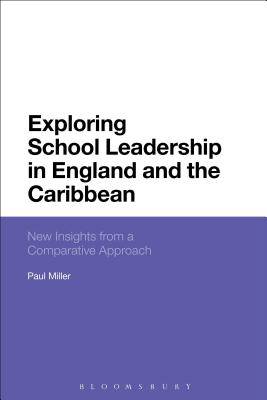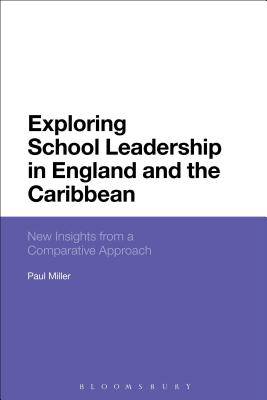
Bedankt voor het vertrouwen het afgelopen jaar! Om jou te bedanken bieden we GRATIS verzending (in België) aan op alles gedurende de hele maand januari.
- Afhalen na 1 uur in een winkel met voorraad
- In januari gratis thuislevering in België
- Ruim aanbod met 7 miljoen producten
Bedankt voor het vertrouwen het afgelopen jaar! Om jou te bedanken bieden we GRATIS verzending (in België) aan op alles gedurende de hele maand januari.
- Afhalen na 1 uur in een winkel met voorraad
- In januari gratis thuislevering in België
- Ruim aanbod met 7 miljoen producten
Zoeken
Exploring School Leadership in England and the Caribbean
New Insights from a Comparative Approach
Paul Miller
Paperback | Engels
€ 88,45
+ 176 punten
Uitvoering
Omschrijving
- What drives school leaders?
- What do they do on a day to day basis?
- What helps or constrains their decision-making?
- What keeps them focused amidst challenges?
Rather than applying theory to practice, Exploring School Leadership in England and the Caribbean draws on how school leaders practice and experience their own leadership. Paul Miller draws on case studies from Jamaica and England to explore what it means to be a school leader and explores a wide-range of issues, including accountability, performativity, inclusion and multiculturalism, technology, staffing and resourcing decisions.
While no two school leaders will have identical experiences as a school leader, Paul Miller draws on the first-hand accounts of school leaders to show that regardless of school size, type and location there are a number of common experiences and themes. Miller acknowledges that the practice of school leadership is occurring in an uncertain economic environment, buoyed by a fast paced policy context where by targets linked to national economic development are the new normal. He concludes that school leadership is a continuous balancing act driven by and experienced through an "Economic-motor model+? of schooling- which he proposes.
- What do they do on a day to day basis?
- What helps or constrains their decision-making?
- What keeps them focused amidst challenges?
Rather than applying theory to practice, Exploring School Leadership in England and the Caribbean draws on how school leaders practice and experience their own leadership. Paul Miller draws on case studies from Jamaica and England to explore what it means to be a school leader and explores a wide-range of issues, including accountability, performativity, inclusion and multiculturalism, technology, staffing and resourcing decisions.
While no two school leaders will have identical experiences as a school leader, Paul Miller draws on the first-hand accounts of school leaders to show that regardless of school size, type and location there are a number of common experiences and themes. Miller acknowledges that the practice of school leadership is occurring in an uncertain economic environment, buoyed by a fast paced policy context where by targets linked to national economic development are the new normal. He concludes that school leadership is a continuous balancing act driven by and experienced through an "Economic-motor model+? of schooling- which he proposes.
Specificaties
Betrokkenen
- Auteur(s):
- Uitgeverij:
Inhoud
- Aantal bladzijden:
- 192
- Taal:
- Engels
Eigenschappen
- Productcode (EAN):
- 9781350042285
- Verschijningsdatum:
- 27/07/2017
- Uitvoering:
- Paperback
- Formaat:
- Trade paperback (VS)
- Afmetingen:
- 156 mm x 234 mm
- Gewicht:
- 276 g

Alleen bij Standaard Boekhandel
+ 176 punten op je klantenkaart van Standaard Boekhandel
Beoordelingen
We publiceren alleen reviews die voldoen aan de voorwaarden voor reviews. Bekijk onze voorwaarden voor reviews.









